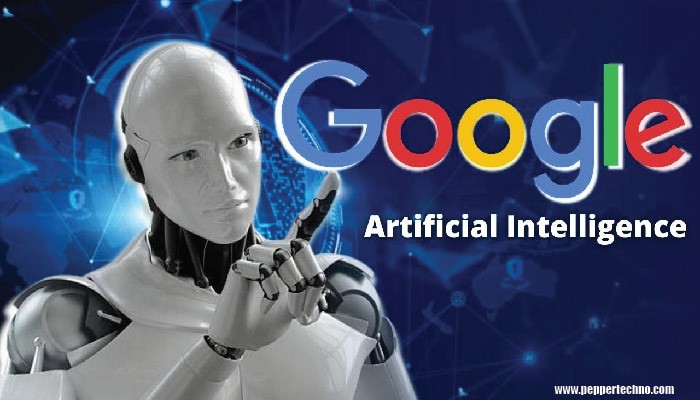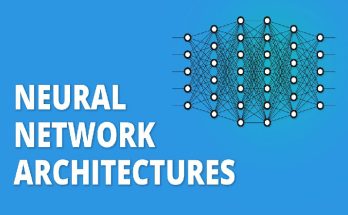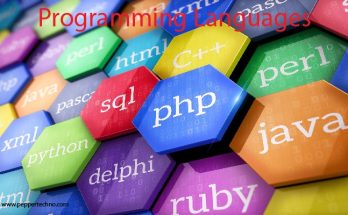Inside the Google verse: Exploring the Impact and Innovations of Artificial Intelligence in Google Realm
Step into the Artificial Intelligence in Google Realm of innovation and technology where artificial intelligence reigns supreme – welcome to the Google verse! In this digital playground, Google’s AI capabilities have revolutionized how we interact with information, services, and each other. Join us on a journey to explore the impact and innovations of artificial intelligence within the vast ecosystem of Google. Let’s delve deep into the world where machines think, learn, and evolve alongside us.

The Evolution of AI in Google
Google’s journey with AI has been nothing short of remarkable. From its early days experimenting with search algorithms to now integrating AI across various products, the evolution has been truly transformative.
As Google continued to refine its AI capabilities, we witnessed breakthroughs in image recognition, natural language processing, and even self-driving cars through its subsidiary Way Mo. With each innovation, Google pushed the boundaries of what AI could achieve.
The integration of AI into services like Google Search, Gmail, and Maps has enhanced user experience by providing personalized recommendations and predictive suggestions. This seamless integration showcases how Google harnesses the power of AI to simplify our daily lives.
However, this rapid advancement has also raised concerns about data privacy and algorithm bias. As Google continues to expand its use of AI technologies, addressing these ethical considerations will be crucial for building trust with users worldwide.
Applications of AI in Google’s Products and Services
Google has seamlessly integrated artificial intelligence into a myriad of its products and services, revolutionizing the way we interact with technology. From Google Search to Gmail, AI algorithms work behind the scenes to provide personalized results and enhance user experience.
In Google Photos, AI-powered features like automatic tagging and smart albums help users organize their memories effortlessly. The predictive text feature in Gmail uses machine learning to suggest responses based on email content, saving time and improving productivity.
Google Assistant is another standout example of AI implementation, offering voice-activated assistance across various devices. Its natural language processing capabilities allow for intuitive interactions, making tasks like setting reminders or checking the weather a breeze.
Furthermore, Google’s deep learning models power advancements in healthcare through projects like diabetic retinopathy detection using AI image analysis. These applications demonstrate the vast potential of artificial intelligence in enhancing our daily lives.
The Controversies Surrounding Google’s AI
Google’s advancements in AI have sparked heated debates and controversies within the tech community and beyond. One major concern is the issue of privacy, with critics raising alarms about data collection and potential misuse of personal information by Google’s AI algorithms. Another hot topic is bias in AI systems, as Google works to address concerns regarding discriminatory outcomes based on race, gender, or other factors. Additionally, there are ethical dilemmas surrounding the use of AI for military applications or potentially harmful purposes.
Furthermore, questions about transparency and accountability in Google’s AI decision-making processes continue to be raised. The lack of clear guidelines on how decisions are made by AI systems can lead to distrust among users and regulators alike. As Google pushes boundaries with its innovative technologies, it must navigate these controversies carefully to maintain trust and credibility in the ever-evolving landscape of artificial intelligence.
The Future of AI in Google
As we look ahead to the future of AI in Google, the possibilities seem boundless. With ongoing advancements in machine learning and deep neural networks, Google is poised to revolutionize how we interact with technology like never before.
One exciting area where AI is expected to make a significant impact is in personalized user experiences. Imagine a world where Google’s algorithms can anticipate your needs and preferences before you even realize them yourself.
Moreover, AI-powered virtual assistants like Google Assistant are likely to become even more sophisticated, providing users with seamless and intuitive support for their daily tasks and inquiries.
Additionally, industries such as healthcare and transportation stand to benefit greatly from Google’s AI innovations. From improved diagnostics in medical imaging to more efficient traffic management systems, the applications of AI are truly transformative.
In essence, the future of AI in Google holds immense promise for enhancing our lives in ways we have yet to fully grasp. The journey towards this future is undoubtedly one filled with endless opportunities for growth and innovation.
How Other Companies are Using AI Similar to Google
As artificial intelligence continues to revolutionize industries, other companies are also leveraging AI in ways similar to Google. Companies like Amazon and Microsoft are incorporating AI into their products and services to enhance user experiences. Amazon’s recommendation system uses AI algorithms to suggest personalized products based on users’ browsing history and preferences.
Similarly, Microsoft has integrated AI into its cloud computing platform Azure, offering machine learning tools for businesses to analyze data and make informed decisions. Facebook utilizes AI for facial recognition technology, allowing users to tag friends in photos automatically.
In the healthcare sector, IBM’s Watson Health employs AI algorithms to assist doctors in diagnosing medical conditions more accurately and efficiently. Tesla is pushing boundaries with self-driving cars powered by AI technology, changing the landscape of transportation.
The impact of AI across various industries is undeniable as companies strive to innovate and stay competitive in the digital age.
Conclusion: The Pros and Cons of Living in the Google verse
As we delve deeper into the Google verse, it becomes evident that artificial intelligence plays a pivotal role in shaping the future of technology and innovation within Google. The applications of AI in various products and services have revolutionized user experiences and streamlined processes. However, with great power comes great responsibility.
While the advancements in AI enhance efficiency and convenience, they also raise concerns about data privacy, algorithmic bias, and ethical implications. It is crucial for Google to navigate these challenges conscientiously to ensure a safe and equitable digital environment for all users.
As we embrace the era of AI in the Google verse, it is essential to remain vigilant about its potential impact on society as a whole. By fostering transparency, accountability, and inclusivity in AI development, Google can pave the way for a more sustainable and ethical technological landscape.
In this rapidly evolving digital age, striking a balance between innovation and ethics is paramount. Let us continue to explore the possibilities of artificial intelligence while safeguarding our values and principles for a better tomorrow within the ever-expanding realm of the Google verse.



